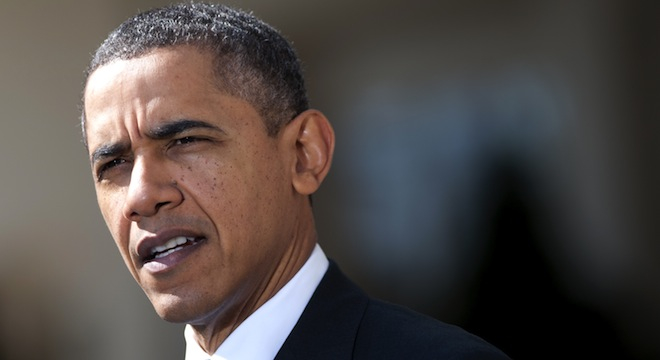The Obama administration is in the midst of defending a law that touches on corporate speech and public health — issues that have been the subject of two of the most explosive Supreme Court cases of the last decade.
The Supreme Court may yet weigh in, but unlike the Citizens United case, in which the court’s five conservative justices loosened the reins on corporate spending and political expenditures — enabling the rise of super PACs — it would decide this time whether the government can compel cigarette companies to graphically advertise their products’ health risks.
The case creates an environment for a perfect storm of partisanship — a health law enacted by President Obama that challenges corporations’ speech. At stake is a 2009 law that authorizes the federal government to place graphic warning labels on cigarette packs in order to discourage people from smoking.
The D.C. Circuit Court of Appeals is set to hear oral arguments Tuesday on the Family Smoking Prevention and Tobacco Control Act, which tobacco companies say violates their First Amendment rights.
Last November, a Bush-appointed federal judge in D.C. blocked implementation of the law, arguing that it’s more emotionally manipulative than informative, and forces tobacco companies to act as “the government’s mouthpiece.”
Subsequently, a Clinton-appointed judge in Kentucky upheld the law. The 6th Circuit Court of Appeals followed suit, in a majority decision written by an Obama-appointed judge that said the labels rationally address a national problem. A D.C. appellate ruling to strike down the law could fast-track the case to the Supreme Court, which is expected to have the final say either way.
“Given the Supreme Court’s eagerness to protect corporate speech rights, don’t be surprised if the justices strike down this law when it comes to them,” said Adam Winkler, a constitutional law professor at UCLA School of Law, referring to Citizens United.
Democrats aren’t sitting idly by. As the law makes its way through the courts, Senate Majority Whip Dick Durbin has enlisted colleagues in a series of efforts to highlight its importance in helping reduce smoking-related deaths.
“The FDA’s graphic warning labels will show consumers the dangers of tobacco use and allow them to make informed choices about their health,” Durbin said after the initial injunction was placed. “Continuing to hide the damaging effects of cigarette smoking behind creative packaging and slick marketing campaigns is a disservice to the public.”
The new labels, originally set to hit shelves in September 2012, supplement textual anti-smoking warnings with one of nine provocative images selected by the Food and Drug Administration, such as a tar-filled lung or an infirm man wearing an oxygen mask. They cover half of a cigarette packet and one-fifth of any advertisement.
Conservatives are hoping the courts roll back the law, but the GOP has remained largely silent because of the broad anti-smoking public consensus — many Republicans voted for the legislation for that reason. Nevertheless, an adverse ruling would dovetail with the right’s ideological drive to protect corporations from government regulations.
The D.C. appellate court’s decision could influence the trajectory of the legal challenge. But the high court’s five Republican-appointed justices’ endorsement of strong constitutional protections for corporate speech — despite high public disapproval — creates the real possibility that Obama’s anti-smoking law will be in their crosshairs.






